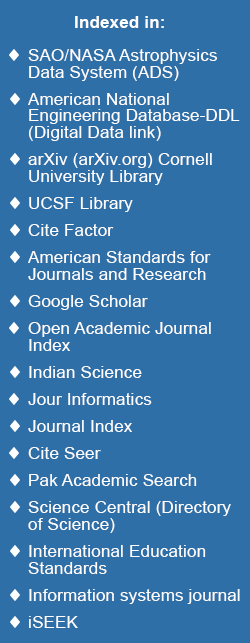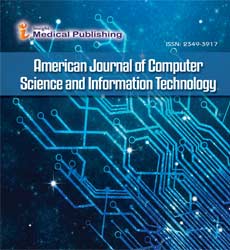ISSN : 2349-3917
American Journal of Computer Science and Information Technology
Review To Examine The Use Cases And Application Of AI And Ml Techniques In Petroleum Industry
Omid Bernstock*
Department of Computer Science, Medical Sciences and Arts Research Branch, Islamic Azad University, Tehran, Iran
- *Corresponding Author:
- Omid Bernstock
Department of Computer Science, Medical Sciences and Arts Research Branch, Islamic Azad University, Tehran, Iran
E-mail:Bernstockomid23@gmail.com
Received date: September 07, 2022, Manuscript No. IPACSIT-22-15212; Editor assigned date: September 09, 2022, PreQC No. IPACSIT-22-15212(PQ); Reviewed date: September 16, 2022, QC No IPACSIT-22-15212; Revised date: September 23, 2022, Manuscript No. IPACSIT-22-15212(R); Published date: October 06, 2022, DOI: 10.36648/ 2349-3917.10.10.3
Citation: Bernstock O (2022) Review to Examine the Use Cases and Application of AI and Ml Techniques in Petroleum Industry. Am J Compt Sci Inform Technol Vol. 10 Iss No.10:003.
Description
In the petroleum industry, the application of Artificial Intelligence (AI) and Machine Learning (ML) techniques has received a lot of attention in recent years. Massive amounts of structured and unstructured data are produced when cutting-edge technologies and tools are used. An important area of research is the rapid organization and processing of this information for performance forecasting and assessment in field development and management. Research that focuses on the applications of machine learning and data-driven approaches in exploration and production operations in order to achieve more accurate predictions and improve decision-making processes has been directed by academia and industry in response to the numerous challenges that were encountered when attempting to predict the operative features using conventional methods. For the purpose of optimizing upstream processes like reservoir studies, drilling, and production engineering, this study provides a review of the use cases and applications of AI and ML in the petroleum industry. Performance optimizations based on data-driven approaches have been used to improve decision-making workflows, and the difficulties associated with routine methods for predicting operative parameters have been assessed. In addition, various scenarios regarding how the oil and gas industry might be altered in the future by artificial intelligence were discussed.
Enhancement and Optimization of Hydrocarbon Production
Deeper and further out, newer reservoirs for the exploration of hydrocarbons can be found. The need for petroleum-related materials is growing daily, as was mentioned by. As a result, businesses must take steps to optimize production, cut costs, and reduce the negative effects of hydrocarbon production on the environment. Using conventional methods for hydrocarbon resource exploration, production, and management will not help us achieve these goals. Data-driven technologies, on the other hand, can help businesses increase profits with new emerging strategies and modeling techniques. Substantiated that the implemented methods in traditional approaches to the production of hydrocarbons fall into three categories: mathematical, physical, and empirical. The empirical approaches are based on previous observations and experiments, whereas the mathematical methods are dependent on mass, momentum, and energy conservation equations. The use of these methods necessitates a number of simplifying assumptions because of the shortcomings of mathematical methods in various operational situations and the inaccuracies of empirical methods' results. As a result, these methods perform poorly when dealing with complex relationships, noises, and incomplete data. In investigation and creation tasks, colossal volumes of information are made in different everyday cycles. In data-driven methodologies and big data interpretations, these databases can be utilized to achieve useful decision-making strategies. The enhancement and optimization of hydrocarbon production is the benefit of utilizing these models. For numerous oilfield-related processes, the application of soft computing methodologies has proven promising for the resolution of numerous challenging issues. Different examinations have demonstrated that the computer based intelligence and ML strategies handle helpful solutions for activity related challenges presently being looked in the modern tasks and can successfully help with resolving the issues related with handling and translation of immense data sets.
Variety of Ml Strategies Relevant to the Petroleum Industry
A study found that petroleum operations account for more than 80% of big data's value chain applications and emphasized that the oil and gas industry is increasingly relying on big data. He talked about how using AI and machine learning in operations helped make better decisions for petroleum-related operations. The present work will examine a variety of ML strategies relevant to the petroleum industry. Then, we'll talk about how these algorithms are used in different parts of the petroleum industry and how they can be used to get useful information for making decisions from databases. We will discuss how these techniques are used in reservoir studies, drilling, and production optimization, as well as in the prediction of petrophysical features. In various parts of the petroleum industry, AI and machine learning are increasingly being used as effective alternatives to traditional methods. According to statistical quality assessing evaluations, various works have demonstrated that these methods exhibit predictive performance of over 90%. Shale sweet spots, lithofacies, and lithological and stratigraphic features have all been predicted using these techniques, as have seismic horizons. The drilling challenges, such as estimating lost circulation volume or identifying drilling hazardous events, were minimized, and the drilling variables, such as ROP, velocity of settled cuttings, and differential sticking, were effectively predicted and optimized. By estimating reservoir characteristic variables like porosity, permeability, water saturation, bubble point pressure, and recovery factor, the use of ML and AI methods to improve various sections of reservoir studies has been evaluated. The present work has also addressed log generation, history matching, and flow rate estimations. Additionally, the use cases of AI and ML methods in the optimization of fluid production by estimating oil and gas production rates, well treatment, and artificial lift planning, all of which enhance production-related decision making, have been discussed. In addition, the potential criteria for how artificial intelligence could grow and spread in the oil and gas industry in the future were evaluated. By providing accurate predictions and effective solutions for a variety of petroleum industry operations, the AI and ML approaches have greatly reduced operational and computation time and associated costs.

Open Access Journals
- Aquaculture & Veterinary Science
- Chemistry & Chemical Sciences
- Clinical Sciences
- Engineering
- General Science
- Genetics & Molecular Biology
- Health Care & Nursing
- Immunology & Microbiology
- Materials Science
- Mathematics & Physics
- Medical Sciences
- Neurology & Psychiatry
- Oncology & Cancer Science
- Pharmaceutical Sciences
